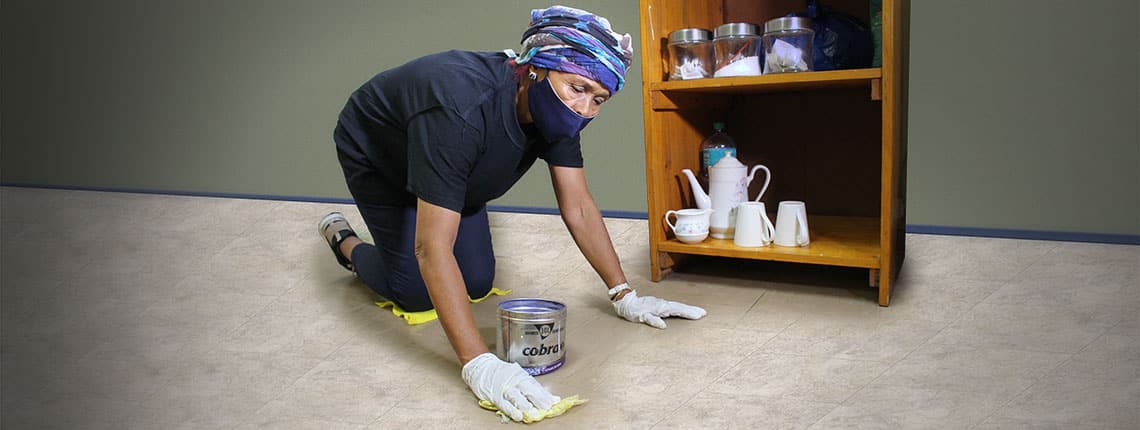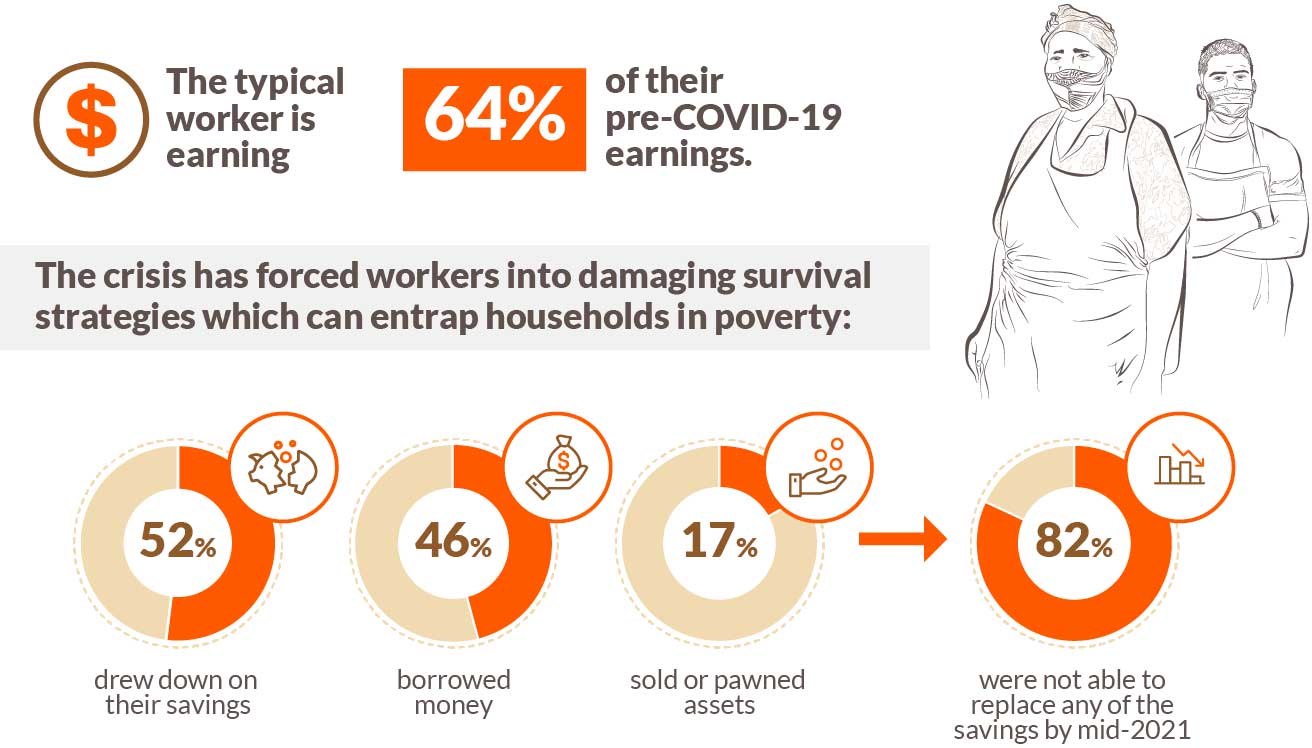April 28 marks World Day for Safety and Health at Work. The official theme for 2023 celebrates the adoption of health and safety as a fundamental principle and right at work, and centres on the role of workers organizing for access to occupational health and safety provisions.
Workers engaged in informal employment earn incomes so that they and their families can live in dignity. Yet, they are often subjected to working environments that pose inherent risks to their health and safety. As seen at various stages of the ongoing COVID-19 pandemic, domestic workers have endured longer working hours carrying heavy loads, street vendors have faced poor access to water, waste pickers have been exposed to hazardous waste without the necessary personal protective equipment, and home-based workers have continued to lack vital access to COVID-19 vaccination.
Occupational health and safety provisions – such as personal protective equipment, fire and electrical safety, ergonomic tools, vaccinations and access to sanitation stations – are vital for workers in informal employment, not least because illness and injury caused by a lack of such provisions often have serious impacts on workers’ livelihoods.
WIEGO has engaged in collaborative research efforts to describe and quantify the financial burden placed on workers who face workplace risks to their health and safety. A study carried out in collaboration with the International Institute for Environment and Development (IIED) found that street vendors working in Nakuru (Kenya) were forced to spend approximately 20% of their own incomes on sourcing clean, potable water, and on accessing toilet facilities, while vendors in Durban (South Africa) spent up to 12% of their incomes. But this lack of basic occupational health and safety provision didn’t only reduce workers’ incomes in a direct sense. Needing to source one’s own water and sanitation also created a time burden for vendors, risked their health and the health of the public, and allowed for their marginalization by the general public, law enforcement and the state – all of which further imperiled workers’ livelihoods.
Workers across the globe have been falling into debt due to the need to pay out of pocket to treat illnesses and injuries that have worsened – or been caused – by their working conditions, as a result of health care becoming increasingly unaffordable. According to a series of surveys conducted in collaboration with the International Domestic Workers’ Federation (IDWF), around half of all surveyed domestic workers in Madhya Pradesh (India) reported that their most recent illness or injury was work-related, and that the majority received no income at all while seeking treatment to recover. 70% of their counterparts in Nagaland (India) also reported needing to take out a loan to pay for their treatment. Additionally, a separate survey carried out in collaboration with HomeNet Cambodia has shown that, among home-based artisans in Cambodia, health costs have been the most common reason for workers accumulating debt.
A lack of occupational health and safety provisions, coupled with generally poor access to health care, endangers workers’ health and their livelihoods, but is also likely to have gendered impacts. Given that women are concentrated in the most vulnerable forms of informal labour, the absence of key protections serves only to heighten risk. Impending austerity measures to reduce governments’ expenditure on health care and health-protective public services (such as water and sanitation, education, housing and transport) will further exacerbate the situation.
But workers are fighting back.
Recent successes at grassroots level prove that it is possible to hold employers and the state accountable for creating healthy and safe workplaces, using health as a key movement-building tool. Organizing by the South African Domestic Service and Allied Workers Union (SADSAWU) and United Domestic Workers of South Africa (UDWOSA) successfully challenged the South African government to ensure domestic workers and their families can claim compensation for workplace accidents, illness and death as part of the Compensation for Occupational Injuries and Diseases Act 130 of 1993 (COIDA). This important inclusion of domestic workers within the legislation also means that employers of domestic workers in South Africa are legally obliged to make contributions to a compensation fund on behalf of their employees, while also providing and maintaining a safe working environment within private homes that does not put workers’ health at risk. Additionally, workers from the Zimbabwe Chamber of Informal Economy Associations (ZCIEA) signed a Memorandum of Understanding with the Masvingo City Council, which will provide access to toilets and other infrastructure, promoting healthy and safe informal workplaces.
This World Day for Safety and Health at Work, we stand in solidarity with workers in informal employment across the globe who shoulder the burdens of health and livelihood risks. We mourn and remember those who have lost their lives due to unprotected workplaces. And, finally, we give our unwavering support to those who struggle onwards to ensure accountability and to secure their right to health and dignity.
Top photo: Domestic worker Susan at work at her employer’s house. Due to the pandemic, her employer of 19 years could not pay her full time. Instead, they hired Susan for one day per week. Credit: Sharon McKinnon and Melissa Bolton

